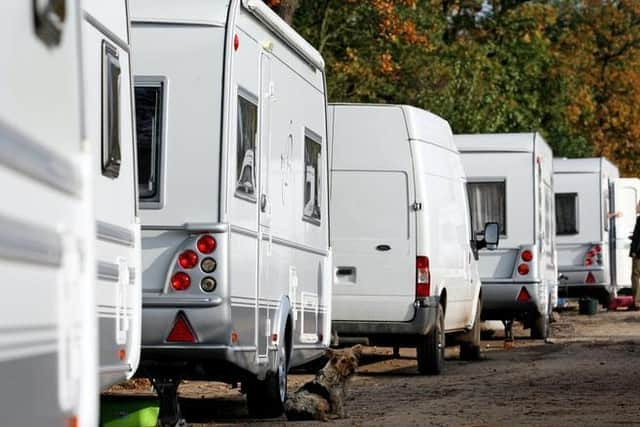Travellers in Milton Keynes say they've been "forgotten" during the Covid-19 crisis
and live on Freeview channel 276
When the crisis struck, there were 33 Traveller vans pitched legally on sites operated by MK Council. Several more have been parked illegally throughout the city during lockdown, and these were moved on as normal.
A spokesman for The Travellers’ Times, a national project seeking to challenge discrimination, said: “Many families are worried about how they can protect themselves and others and follow the public health guidance. It’s unacceptable that they are excluded from some local authorities’ planning and delivery of support for vulnerable groups.”
Advertisement
Hide AdAdvertisement
Hide AdA report from human rights group Doctors of the World found UK Travellers, like all “excluded people”, are at greater risk of being exposed to the coronavirus and are struggling to access healthcare services.


It noted that Traveller workers have been heavily impacted by job losses, while children are missing out on education due to “digital exclusion”.
The Traveller Movement charity said it is hard to estimate the impact of the coronavirus on Gypsy, Roma and Traveller communities, but that existing health disparities will be exacerbated.
Chelsea McDonagh, the group’s education policy and campaigns officer, said GRT communities like hers have been forgotten about.
Advertisement
Hide AdAdvertisement
Hide AdShe said: “Those who are still roadside are not protected by the weak government guidance and as a result are still being moved on, whilst access to education is not happening for all GRT children.
“This pandemic has shown, once again, that GRT communities are not a priority for the Government and it is much easier to forget about them rather than meet their needs.”
Across England, 22,700 Traveller caravans were recorded in January – with almost 90 per cent on authorised sites.
However, the number of families living by the roadside or on other unauthorised sites this summer will not be known, as the usual July count has been suspended because of the Covid-19 outbreak.
Advertisement
Hide AdAdvertisement
Hide AdA report from human rights group Doctors of the World found UK Travellers, like all “excluded people”, are at greater risk of being exposed to the coronavirus and are struggling to access healthcare services.
It noted that Traveller workers have been heavily impacted by job losses, while children are missing out on education due to “digital exclusion”.
At the start of the year, there were almost 3,000 unauthorised caravans across England.
The Travellers’ Times is urging the government and local authorities to provide everyone in unauthorised encampments with water and sanitation facilities during the crisis.
Advertisement
Hide AdAdvertisement
Hide AdIt wants all evictions of these sites to be stopped and for local authorities to work with Travellers to agree on a temporary period for them to remain
A government spokeswoman said councils are best placed to determine how to support individuals in their own communities and when to use their powers to remove unauthorised encampments.
She added: “Councils are also best placed to assess what needs to be done to ensure Gypsy and Traveller communities are protected and supported through the pandemic.
“The vital work councils are doing, across their communities, is backed by £3.2 billion of government funding.”